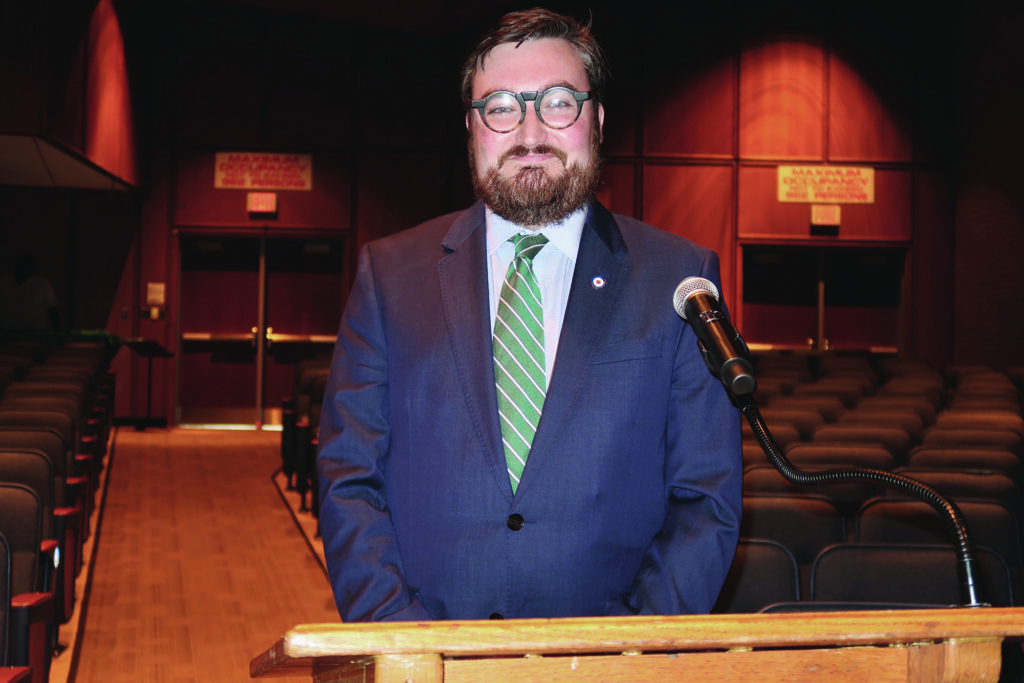Dealing with dementia in age of COVID-19

Dealing with dementia, whether it’s the result of Alzheimer’s or another cause, is enough of a challenge in ordinary times. During the COVID-19 pandemic, the challenge is even greater for both the patient and caregivers.
That’s why Peconic Bay Medical Center brought together a team of experts at a virtual forum last week to explain the challenges and offer a wealth of resources vital to meeting needs of both patients and caregivers.
Anyone who has experienced COVID-19 or had their lives disrupted in many ways by the pandemic can relate to the disorientation, said Community Education Manager Elizabeth Robles for the Alzheimer’s Association. But for someone already disoriented by any of the number of illnesses that result in dementia, the thin thread of routine that provides a semblance of order can easily become untenable in this more than year-long siege.
For caretakers already stressed by efforts to help a loved one suffering from dementia, their lives, too, have been disrupted, requiring a different set of coping skills, Ms. Robles said.
Part of that may be asking for help from other family members who previously may have had little day-to-day interaction with the patient but are now needed to provide some relief for the primary caregiver.
She offered some tips to help your dementia-afflicted relative living in your home and the steps needed to keep the patient safe from encountering COVID-19 or other illnesses.
Because so many patients are likely to suffer from hypertension, diabetes or other medical conditions, their immune systems are often already compromised. Not only do they have to follow the protocols of thoroughly washing their hands frequently and wearing masks in public, but they need guidance in the home. Putting up notes in the bathroom to remind a patient to wash hands thoroughly can help. When it’s necessary to leave the house, it’s important to assure the patient uses hand sanitizers with at least a 60% alcohol content.
For some patients, there are adult day care programs that can provide a respite for primary caregivers and if there are no family members to assist, it may be necessary to hire professionals. But they, too, must be vetted and follow their own health protocols — washing their hands thoroughly and frequently and wearing masks while in the home to avoid carrying illness to the dementia patient.
If the patient becomes ill, particularly if he or she has a temperature of 100.4 or higher, you must get them to a medical provider who can assess needs, whether it’s changes in at home care or hospitalization.
If you’re following precautions already, you are limiting those who come inside your house. But you may have to tighten up on that to keep yourself and your patient well, Ms. Robles said.
If the patient is in a care facility such as a nursing home, you need to get answers about what precautions the staff is taking; and methods of communicating with your loved one, whether it’s through arranged telephone calls or video contact.
You should know if that facility has incidences of COVID-19 and how they are being addressed.
You may share your living quarters with other family members, some of whom are working outside the home and it’s important they are taking the right steps to avoid illness.
In your home, you need to create as much routine as possible but also attend to some elements that were of lesser concern for the dementia patient prior to the pandemic.
Try to create opportunities for physical activities that will help both you and your loved one. That might be chair yoga or any number of streaming services that can lead you through gentle exercises. Put on music and dance. It lifts the spirit and, again, helps both the patient and the caregiver.
Many of the needs come with price tags that can stress you out. Obviously, the best effort is to plan ahead and put money aside for the day when it might be needed. But the Alzheimer’s Association has financial and legal resources that can help in that regard as well, Ms. Robles said.
She encourages caregivers to visit the association’s website at www.alz.org.
Dr. James Lolis, Medical Director of the Northwell Health Physician Partners Geriatric and Palliative Medicine, joined the conversation, starting with an explanation that palliative care is not necessarily end-of-life care associated with hospices. Hospice care is designed to serve the needs of patients who are diagnosed with illnesses that put their likely survival at not more than six months. Palliative care can provide pain relief and assistance to patients to ease suffering.
He joined Ms. Robles in recommending physical activity and therapy, noting that studies have shown improved outcomes for patients who exercise and engage in physical therapy.
His associate, Barbara Vogel, a licensed social worker, said it’s important for people to have advance directives about the care they wish to receive or prefer not to receive before a crisis develops.
As for COVID vaccinations, Dr. Lolis said he has heard of no severe reactions among dementia patients and encourages they receive inoculations.
Finally, if you’re a primary caregiver and you feel ill, you should have backup care for your loved one.








